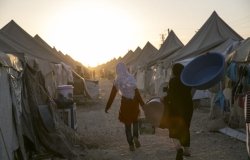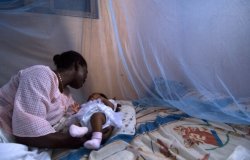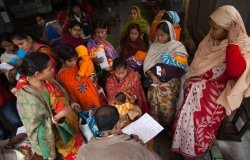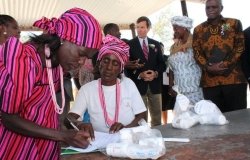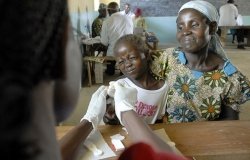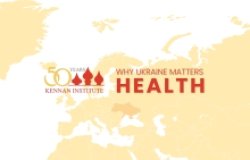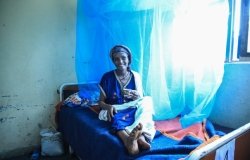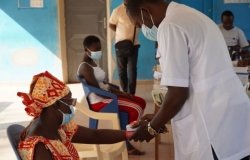Global Health and Gender Policy Brief: Malaria and Most Vulnerable Populations
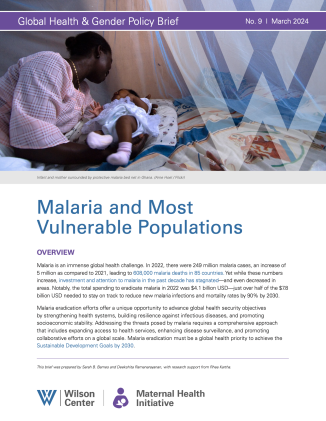

Malaria is an immense global health challenge. In 2022, there were 249 million malaria cases, an increase of 5 million as compared to 2021, leading to 608,000 malaria deaths in 85 countries. Yet while these numbers increase, investment and attention to malaria in the past decade has stagnated—and even decreased in areas. Notably, the total spending to eradicate malaria in 2022 was $4.1 billion USD – just over half of the $7.8 billion USD needed to stay on track to reduce new malaria infections and mortality rates by 90% by 2030.
Like other infectious diseases, it has the potential to spread rapidly across borders and continents, especially in regions where it is endemic. Shifting weather patterns caused by climate change, as well as human migration and resettlement, can lead to malaria being introduced, or re-introduced, to previously low-transmission or malaria-free areas.
In a new policy brief, Malaria and Most Vulnerable Populations, the Wilson Center’s Maternal Health Initiative looks at the current state of malaria globally. We assess the devastating effects of malaria on maternal, newborn, and child health outcomes, survey improved prevention methods and treatments, and underscore the role of community health workers and global health diplomacy in the fight against malaria. We also provide recommendations to help prioritize malaria eradication in a time of increased prevalence and decreased global attention.
Authors

Maternal Health Initiative
Life and health are the most basic human rights, yet disparities between and within countries continue to grow. No single solution or institution can address the variety of health concerns the world faces. By leveraging, building on, and coordinating the Wilson Center’s strong regional and cross-cutting programming, the Maternal Health Initiative (MHI) promotes dialogue and understanding among practitioners, scholars, community leaders, and policymakers. Read more



